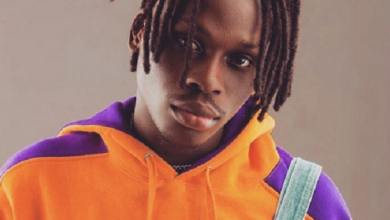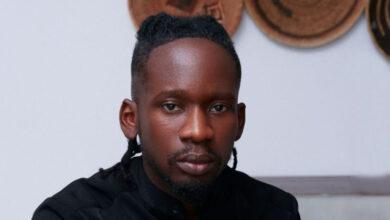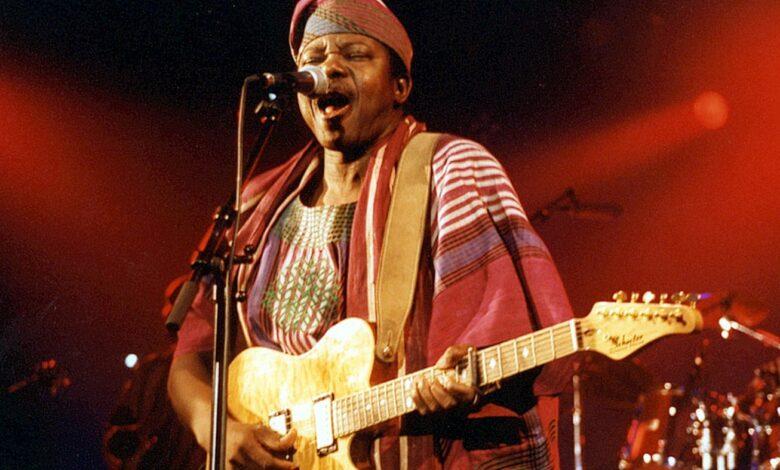
Top 15 Classic Highlife Music in Nigeria
Classic Highlife Music in Nigeria: Highlife music holds a special place in the hearts of many Nigerians. The genre blends the catchy rhythms of traditional African percussion with the melodic influences of Western instruments like guitar, brass, and piano. This fusion gives Highlife its upbeat, danceable sound that is equally enjoyable to sing along with.Information Guide Nigeria
For over a century, highlife has been a celebrated part of Nigerian culture, evolving through the decades to incorporate new styles and influences. The heyday of classic highlife spanned the 1960s to the 1980s, giving us countless toe-tapping hits that can still get a party started today.
👉 Relocate to Canada Today!
Live, Study and Work in Canada. No Payment is Required! Hurry Now click here to Apply >> Immigrate to CanadaIn this article, we will explore fifteen of the top highlife tracks from Nigeria’s extensive catalog. We will learn about the origins of each song, the stories behind their creation, and the reasons they have stood the test of time as classics of the genre.
Whether you are new to highlife or a longtime fan, this list offers a perfect introduction to the most beloved and enduring songs of the style from Nigeria’s rich musical history.
Read Also: 15 Ways to Become a Celebrity in Nigeria
The Beginnings of Highlife Music in Coastal Ghana
Before diving into the top tracks, it helps to understand the background of highlife. The genre grew out of late 19th century Ghana, which was then a British colony known as the Gold Coast. Highlife blended traditional Akan beats and palm-wine music with regimental brass band influences from visiting sailors.Classic Highlife Music in Nigeria
Highlife’s buoyant rhythms and fusion of styles perfectly suited the coastal dance scene. Through the early 1900s, it gained popularity in Ghanaian towns and cities. By the 1920s, the music traveled back from Ghana to western Nigeria. This key route allowed highlife to spread through other regions.
As highlife moved, it absorbed new rhythms like rumba and merengue. The guitar-driven style gained international recognition at the Ghanaian state dance Tempo. Musicians like E.T. Mensah pioneered the sound during highlife’s golden era of the 1950s.
Top 15 Classic Highlife Music in Nigeria
This rich history sets the stage for highlife’s expansion in Nigeria. Let’s explore the top hits that define the genre for generations of Nigerian listeners.Top 10 Shaving Gel Brands Available in Nigeria
1. “Sweet Mother” – Prince Nico Mbarga (1976)
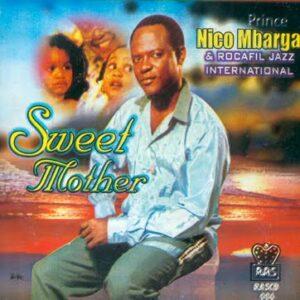
Photo Source: BellaNaija
No highlife playlist is complete without “Sweet Mother.” This Grammy-nominated track comes from Cameroonian musician Prince Nico Mbarga and his band Rocafil Jazz. They recorded the album “Sweet Mother” in 1976 to instant acclaim across Nigeria.
👉 Relocate to Canada Today!
Live, Study and Work in Canada. No Payment is Required! Hurry Now click here to Apply >> Immigrate to CanadaThe song’s heartfelt lyrics pay tribute to mothers and their devotion to their children. Sung in the popular West African pidgin language, the message beautifully transcends culture and language. Mbarga’s sincere vocals, combined with masterful highlife guitarwork, created an anthemic pan-African hit.Top 15 Leading Acting Institutes in Abuja
“Sweet Mother” appears on the soundtrack to films like “Coming to America” and remains one of Africa’s most popular and covered songs. For its universal appeal and ability to endear listeners, it earns the top spot among the classics of Nigerian highlife.
Read Also: Top 14 80s New Wave Songs
2. “Ije Udo” – Oriental Brothers (1975)
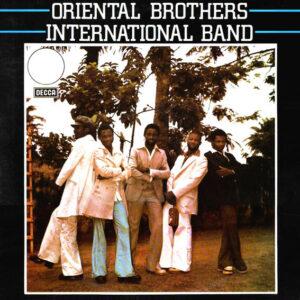
Photo Source: Discogs
In 1975, the Oriental Brothers International Band released this lyrically uplifting track. “Ije Udo” means “journey of peace” in the Igbo language.
Through soulful vocals and expert musicianship, the song promotes themes of harmony and avoiding conflict. The Oriental Brothers deftly blended highlife with other styles like a waltz to create a universally danceable Afropop crossover.Dollar to Naira
“Ije Udo” permeated Nigerian pop culture as the country underwent significant political change and conflict in the 1970s. The song’s message of peace offered respite during turbulent times. It also showed Highlife’s adaptability by introducing waltz influences.
3. “Omo Pupa” – Chief Stephen Osita Osadebe (1984)
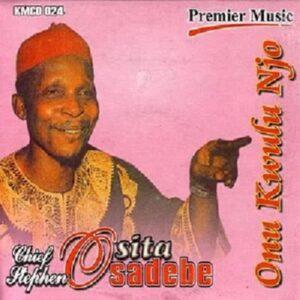
Photo Source: Last.fm
Chief Stephen Osita Osadebe stands as one of the foremost Igbo highlife musicians. This 1984 single “Omo Pupa” endures as one of his most popular releases.JAMB Result
The lyrics directly translate to “red flower” and figuratively refer to a beautiful woman. Osadebe sings sweetly about feminine beauty over traditional Igbo rhythms. The commenting guitar also mimics traditional Igbo melodies.
“Omo Pupa” enchanted Nigerian listeners with Osadebe’s vocal mastery and ability to modernize Igbo traditional music. Osadebe’s catalog demonstrates his musical range and status as a Highlife icon.
4. “Guitar Boy” – Sir Victor Uwaifo (1966)
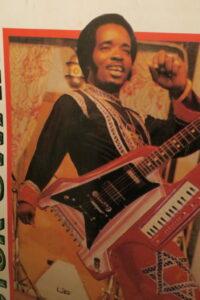
Photo Source: Afropop Worldwide
Recognized as Africa’s most accomplished guitarist, Sir Victor Uwaifo pioneered the integration of guitar in highlife music. This 1966 track highlights both his groundbreaking musicianship and legendary showmanship.
On “Guitar Boy,” Uwaifo tells lively stories of a remarkably skilled guitarist, sung in vibrant Nigerian pidgin. His rapid fire playing style awed audiences and showcased how the instrument expanded highlife’s sonic palette.
Thanks to “Guitar Boy,” Uwaifo became known as not just the most talented guitarist but also the ultimate entertainer. His flashy performances established Nigerian highlife as an exciting spectacle, beyond just dance music.NYSC Portal
Read Also: Top 15 Highlife Songs of all Time in Nigeria
5. “Baby Jowo” – Victor Olaiya (1965)
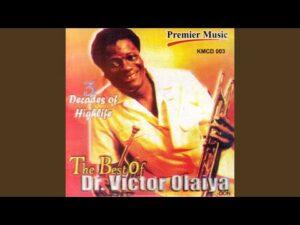
Photo Source: YouTube
This is one of the Classic Highlife Music in Nigeria. Victor Olaiya’s career epitomizes the progression of Nigerian highlife. He began performing in big bands during the 1940s. Olaiya then formed his Cool Cats band and pioneered Afro-beat highlife by the 1960s.
This 1965 single “Baby Jowo” shows Olaiya’s ability to modernize the genre. The track features driving percussion, rich brass, and masterful trumpet playing by Olaiya. He sings in Yoruba about adoring a beautiful woman he calls his “honey darling.”
Playful and danceable, “Baby Jowo” demonstrates Olaiya’s musical innovation that launched modern Nigerian highlife. His discography attests to his hitmaking versatility across decades.
6. “Osinachi” – Celestine Ukwu (1976)
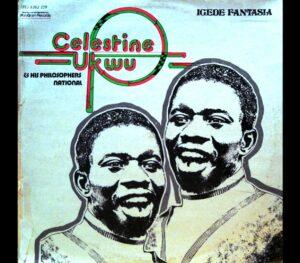
Photo Source: Global Voices
Celestine Ukwu became renowned as one of Nigeria’s most influential highlife musicians before his tragic death in 1977. His work fused Igbo traditions with Congolese guitar styles to create a signature sound.
On this 1976 single, Ukwu sings in Igbo about the rewards of diligence and hard work. The lyrics encourage perseverance through life’s challenges. Backed by excellent musicians, Ukwu’s stirring voice delivers an uplifting message.Good Morning my love Messages
“Osinachi” encapsulates Ukwu’s musical mission – to use highlife as a vehicle for transmitting cultural values. The song reminds listeners that Igbo highlife offers both outstanding artistry and moral guidance.
7. “Onyeoma Tochukwu” – Chief Stephen Osita Osadebe (1984)
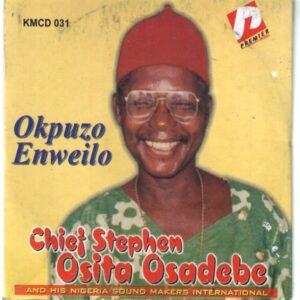
Photo Source: Shazam
This is one of the Classic Highlife Music in Nigeria. Here, Chief Osadebe returns to praise another admirable person through music. The title “Onyeoma Tochukwu” translates to “good child Tochukwu.”
Set to bright Igbo rhythms, Osadebe extols the virtues of this upstanding man. His lyrics cite Tochukwu’s honesty, kindness, discipline, and determination as traits to celebrate.
Osadebe released several songs dedicated to moral exemplars. In singing their praises, he aims to inspire others to follow their principled lead. “Onyeoma Tochukwu” offers another catchy homage made memorable by Osadebe’s vocal talents.
Read Also: Top 15 African Songs with Highest Views
8. “Osondi Owendi” – Chief Stephen Osita Osadebe (1984)
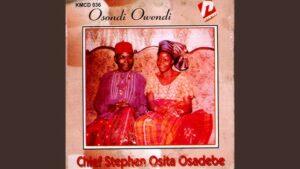
Photo Source: YouTube
This Osadebe hit again honors admirable character, this time embodied in a man named Osondi. The title means “one who is loved by all.”
Also, true to its name, the song depicts Osondi as a universally beloved friend and role model. The lyrics praise his positive spirit, good works, and ability to resolve conflicts. Like with “Onyeoma Tochukwu,” Osadebe employs music to venerate exemplary conduct.Romantic Love Messages for her
Bright horns and guitars provide a lively backdrop to Osadebe’s sage-like vocals. “Osondi Owendi” became an Igbo highlife standard that encapsulates Osadebe’s participatory, morally focused artistry.
9. “Akuko N’ego” – Oliver De Coque (1984)
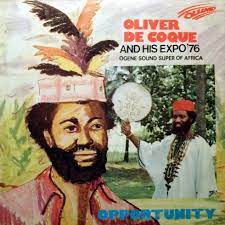
Photo Source: Global Groove Independent
This is one of the Classic Highlife Music in Nigeria. Oliver de Coque holds the famous distinction “guitar boy wonder of Africa.” He achieved breakthrough success with his six-man band Ogene in the 1970s and 1980s.
The 1984 hit “Akuko N’ego” shows de Coque expanding highlife’s style. The title means “story about money” in Igbo. In the song, de Coque warns that love of money causes deceit. His philosophical lyrics promote truth and integrity.
With virtuosic lead guitar and tight syncopation, de Coque modernized highlife’s sound. Philosophical dance hits like “Akuko N’ego” showcase his creative musical vision.
10. “Ofe Owere” – Celestine Ukwu (1976)
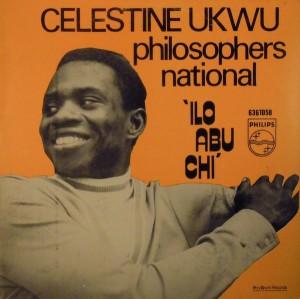
Photo Source: Zikoko!
Celestine Ukwu makes another perfect appearance with this 1976 gem. The song’s title “Ofe Owere” means “soup of the country” in the Igbo language.JAMB Portal
True to its name, Ukwu’s lyrics use a steaming bowl of Ofe Owere as a metaphor for the virtue of hospitality. He sings that just as the traditional soup brings the community together, so too should people unite through welcoming others.
Beyond just dance music, “Ofe Owere” demonstrates Ukwu’s belief that highlife could share positive values. The rich philosophy in the song reflects highlife’s role as “food for the soul” that nourished Nigerian communities.
Read Also: Top 15 80s Dance Songs
11. “Oluwa Lo Ran Mi” – Ebenezer Obey (1972)
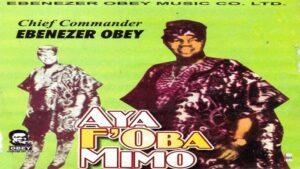
Photo Source: YouTube
This is one of the Classic Highlife Music in Nigeria. Ebenezer Obey stands as one of the foremost Juju musicians who also made major contributions to Nigerian highlife. On this 1972 song, Obey sings in Yoruba about trusting in God’s guidance and blessings.
Also, the title translates to “God watches over me.” Set to the entrancing rhythm of the Sakara drum, Obey voices deep spiritual convictions through highlife. His soaring voice and rich lyrics make “Oluwa Lo Ran Mi” equally euphoric and contemplative.
Obey brought philosophical perspectives to Nigerian popular music. This track demonstrates highlife’s adaptability to share messages of faith with mass audiences.
12. “Ejim Nke’onye”- Oliver De Coque (1984)
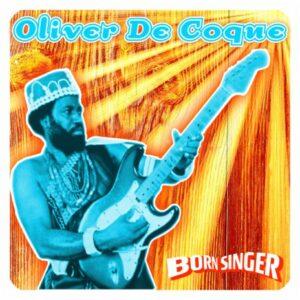
Photo Source: Boomplay
Oliver de Coque makes another top fifteen appearance with this energetic 1984 hit. The song’s title “Ejim Nke’onye” means “dance for unity” in Igbo.
The lyrics encourage people to join together in dance as a demonstration of communal solidarity. De Coque sings that dancing together overrides differences and brings people closer.
Through its vibrant sound and lyrics, “Ejim Nke’onye” shows De Coque’s belief that highlife music could foster understanding. The participatory spirit of the song reflects highlife’s inclusive foundation.
13. Aminata” by Sir Victor Uwaifo (1979)
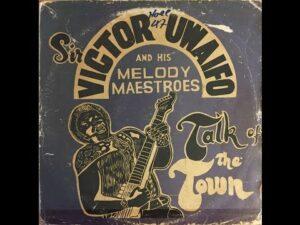
Photo Source: YouTube
This is one of the Classic Highlife Music in Nigeria. “Aminata” is a classic highlife song that talks about a beautiful woman named Aminata. The song is also sung in Pidgin English and has a catchy melody that makes it easy to dance to. It is one of Sir Victor Uwaifo’s most popular songs.
14. “Iyogogo” by Onyeka Onwenu (1988)

Photo Source: YouTube
This is one of the Classic Highlife Music in Nigeria. “Iyogogo” is a classic highlife song that talks about love and the joy of being in a relationship. The song is also sung in Igbo and has a catchy melody that makes it easy to dance to. It is one of Onyeka Onwenu’s most popular songs.
15. “Baby Mi Da” – Victor Olaiya (1971)
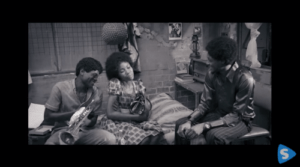
Photo Source: tooXclusive
The beloved highlife track “Baby Mi Da” comes from Nigerian star Victor Olaiya and his Cool Cats band. Recorded in 1971, this catchy song showcases Olaiya’s proficiency in modernizing the highlife genre. Furthermore, the track highlights Olaiya’s versatility as both a trumpeter and vocalist within the evolving Nigerian popular music scene.
Specifically, “Baby Mi Da” employs the common highlife theme of admiration for a beautiful woman’s charm. In lively Pidgin English, Olaiya sweetly sings of his affection for his “honey darling” using the term “baby mi da” meaning “my baby.” Additionally, Olaiya’s melodic and raspy vocals convey a sense of passion and romance. Likewise, his stellar trumpet playing adds a bright countermelody that lifts the beat.
Moreover, the propulsive percussion and horns provide an energetic rhythmic backdrop for Olaiya’s dynamic vocal performance. Similarly, the instrumentation incorporates jazz and big band influences into the highlife template. In turn, this modernized sound ensured the genre stayed current and appealing to Nigerian listeners. Ultimately, “Baby Mi Da” demonstrates Olaiya’s hitmaking ingenuity that launched the modern highlife era.
In summary, Victor Olaiya’s beloved 1971 song “Baby Mi Da” exemplifies his talent for fusing styles to update highlife’s sound. Thanks to classics like this, Olaiya cemented his legacy as the creative force who ushered Nigerian highlife into its vibrant modern incarnation.
Read Also: Top 15 Popular Highlife Songs in Nigeria
The Enduring Rhythms of Nigerian Highlife
This musical journey through fifteen Nigerian highlife classics reveals the genre’s captivating diversity. We heard songs of hope, dance tunes of delight, tributes to virtue, odes to beauty, and more. Also, the ingenuity of top composers allowed Highlife to assume many forms in its Nigerian chapter.
Certain qualities nonetheless unite these songs across time: Lively polyrhythms, the melding of African and Western styles, call-and-response vocals, and themes that resonate with Nigerian life.
Highlife continues to evolve through new fusions like Afrobeats and highlife rap. However, the classic hits retain a timeless appeal. Their melodies and messages will endure to be discovered and cherished by future generations.
Whenever you want to experience the quintessential sound of Nigerian popular music, revisit these fifteen treasures. In addition, let the interwoven guitars, brass, and drums transport you, as they have done for countless delighted fans over the decades. Highlife’s feel-good rhythms will surely get your feet tapping and spirit smiling.
Check JAMB Result
Check and Confirm: How much is Dollar to Naira





